Transforming your home with plants creates an atmosphere that feels fresh, vibrant, and alive. The art of decorating with plants goes far beyond simply placing a houseplant on a windowsill. Today's plant decorating approach involves creating thoughtful displays that serve as living artwork, natural room dividers, and wellness-enhancing focal points. Whether you're drawn to dramatic statement pieces like towering Bird of Paradise plants or prefer the subtle charm of trailing ivy cascading from floating shelves, there's a plant decorating style that perfectly matches your aesthetic vision. From modern minimalist arrangements featuring single sculptural specimens to maximalist jungle displays that transform entire walls into green sanctuaries, plant decorating offers endless possibilities for personalizing your space. The key lies in understanding how different plants interact with your room's lighting, scale, and existing decor while creating displays that feel intentional rather than random.
1. Living Room Statement Plant Arrangements
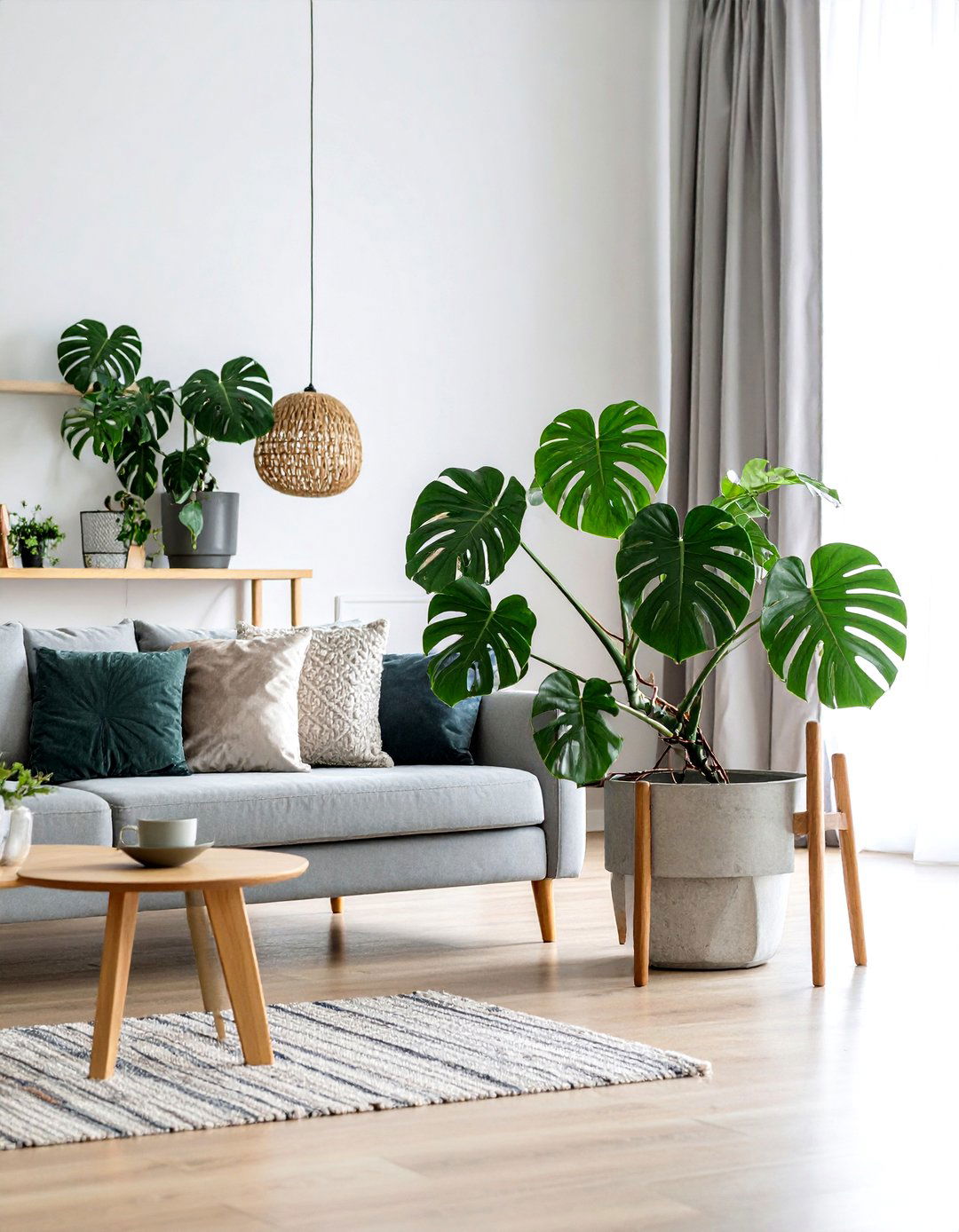
Transform your living space with bold, oversized plants that command attention and create natural focal points. Large specimens like Monstera Deliciosa, Fiddle Leaf Figs, or Bird of Paradise plants positioned in corners or beside seating areas instantly elevate the room's sophistication. These architectural plants work best when given ample space to showcase their dramatic foliage, creating living sculptures that evolve throughout seasons. Consider pairing statement plants with neutral-toned planters in materials like concrete or ceramic to maintain focus on the plant itself. The scale of these arrangements makes small rooms feel more spacious while adding organic softness to hard-edged contemporary furniture and clean lines.
2. Vertical Garden Wall Systems

Create stunning living walls using modular planting systems that transform bare vertical surfaces into lush green displays. Wall-mounted felt pocket planters, wooden grid systems, or hanging planters arranged in geometric patterns offer space-saving solutions for urban homes. These installations work particularly well in entryways, dining rooms, or home offices where they serve as natural artwork. Mix different plant textures and sizes to create visual depth, combining trailing plants like Pothos with upright varieties such as Snake Plants. The key lies in selecting plants with similar light and water requirements while creating varied heights and foliage patterns that draw the eye upward through the display.
3. Terrarium Miniature Ecosystems

Design captivating glass-enclosed worlds using succulents, air plants, or moss to create self-contained decorative displays perfect for tabletops and shelves. Open terrariums work best for most plants, providing adequate airflow while showcasing intricate plant arrangements from every angle. Layer different materials like colored sand, decorative stones, and activated charcoal to create visual interest and proper drainage. Small figurines, driftwood, or crystals transform simple plant displays into storytelling landscapes. These miniature gardens require minimal maintenance while providing maximum visual impact, making them ideal for beginners or anyone seeking low-maintenance plant displays that still feel sophisticated and intentional.
4. Hanging Plant Ceiling Gardens

Suspend plants at varying heights to create dynamic overhead displays that maximize floor space while adding vertical interest to rooms. Macrame hangers, modern metal hooks, or decorative chains support trailing plants like String of Hearts, Boston Ferns, or Ivy that cascade naturally downward. This approach works exceptionally well in rooms with high ceilings, bathrooms with adequate humidity, or above dining tables where plants won't interfere with daily activities. Group hanging plants in odd numbers at different heights to create visual rhythm while ensuring adequate light reaches each specimen. Regular rotation prevents plants from growing unevenly toward light sources, maintaining balanced, full displays.
5. Kitchen Herb Garden Displays

Integrate edible plants into kitchen design using windowsill gardens, wall-mounted planters, or countertop arrangements that provide fresh ingredients while enhancing the space's aesthetic appeal. Herbs like basil, rosemary, thyme, and mint thrive in kitchen environments with proper lighting and easy access for harvesting. Use matching containers or repurpose vintage jars and containers to create cohesive displays that complement existing kitchen decor. Position herbs near cooking areas for convenient access while ensuring they receive adequate natural light. Rotating seasonal varieties keeps displays fresh while providing year-round access to homegrown flavors that elevate everyday cooking experiences.
6. Bedroom Plant Sanctuary Arrangements
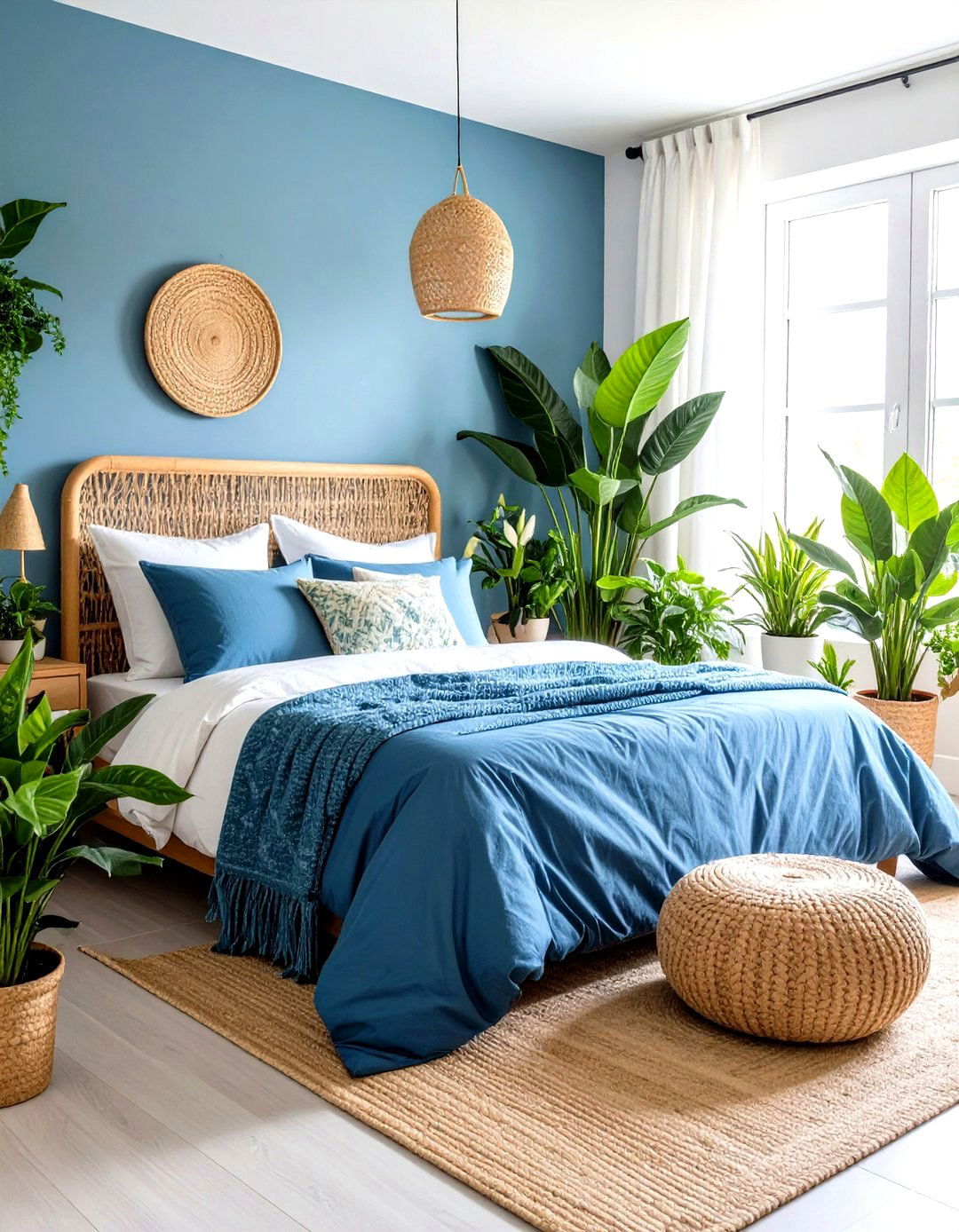
Create calming bedroom environments using air-purifying plants positioned strategically around sleeping areas to promote better rest and relaxation. Plants like Snake Plants, Peace Lilies, or Spider Plants naturally filter air while requiring minimal maintenance that won't disrupt sleep routines. Position plants on nightstands, dressers, or hanging from ceiling hooks to create gentle green presence without overwhelming the space. Choose plants that release oxygen at night rather than carbon dioxide, supporting healthy sleep patterns. Soft, organic shapes from plant foliage balance hard bedroom furniture lines while creating serene, spa-like atmospheres that encourage rest and rejuvenation.
7. Bathroom Humidity-Loving Plant Displays

Transform bathrooms into tropical retreats using moisture-loving plants that thrive in humid environments while creating natural spa atmospheres. Ferns, Orchids, Air Plants, and ZZ Plants flourish in bathroom conditions, adding lush greenery to typically sterile spaces. Window ledges, corner plant stands, or hanging displays near showers create green focal points without interfering with bathroom functions. These plants naturally help regulate humidity levels while adding organic textures that soften hard tile and fixture surfaces. Regular steam from showers provides ideal growing conditions, making bathroom plant displays surprisingly low-maintenance while delivering maximum visual impact and wellness benefits.
8. Office Productivity Plant Arrangements

Design workspace plant displays that boost concentration, reduce stress, and improve air quality in home offices or commercial settings. Desktop plants like small Palms, Succulents, or Rubber Plants positioned near computer workstations provide visual breaks from screen time while purifying air. Larger floor plants in corners or near windows create natural boundaries in open office layouts without blocking sightlines. Choose low-maintenance varieties that tolerate artificial lighting and infrequent watering schedules typical of busy work environments. Strategic plant placement can reduce noise levels, create privacy screens, and establish calming green zones that support productivity and mental well-being throughout demanding workdays.
9. Succulent Collection Arrangements

Display drought-tolerant succulents in grouped arrangements that showcase their diverse forms, colors, and textures while requiring minimal maintenance and care. Arrange different varieties by size, shape, and color to create dynamic compositions on shelves, tables, or dedicated plant stands. Mix rosette-shaped Echeverias with spiky Haworthias and trailing varieties like String of Pearls to create textural interest. Use matching planters in neutral tones or mix complementary colors to enhance specific succulent hues. These arrangements work exceptionally well in sunny locations like south-facing windows where many other plants struggle, providing year-round green displays that tolerate neglect while remaining visually striking and architecturally interesting.
10. Air Plant Artistic Installations
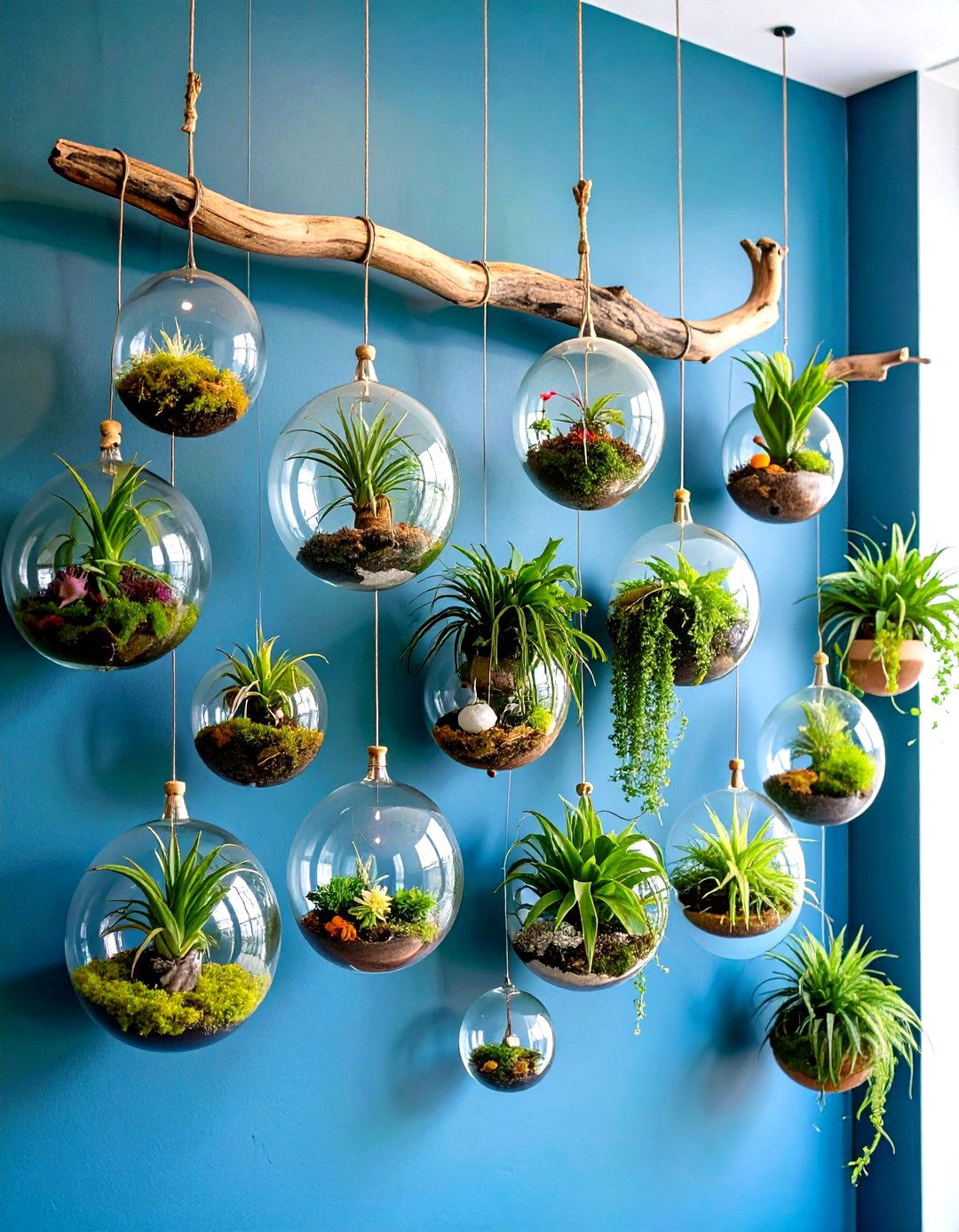
Create floating plant displays using Tillandsia air plants mounted on driftwood, suspended in glass globes, or arranged in geometric wire frameworks that showcase their unique growing habits. These soil-free plants offer unlimited creative possibilities since they absorb nutrients and moisture through their leaves rather than roots. Mount air plants on walls using natural materials like cork bark or arrange them in hanging displays that change with seasonal rotations. Their sculptural forms work well in modern, minimalist spaces where traditional potted plants might feel too heavy or cluttered. Weekly misting provides adequate moisture while allowing complete design freedom to create truly artistic installations.
11. Seasonal Plant Display Rotations

Develop rotating plant arrangements that change throughout the year, incorporating seasonal blooms, foliage colors, and plant varieties that reflect natural cycles and holidays. Spring displays might feature fresh bulbs and bright green growth, while autumn arrangements could highlight plants with warm-toned foliage or seasonal flowers. This approach keeps plant displays fresh and dynamic while allowing you to experiment with different varieties without long-term commitments. Store off-season plants in appropriate locations, bringing them forward when their peak display time arrives. Seasonal rotations also allow for deep cleaning and rearranging of plant spaces, ensuring optimal growing conditions while preventing displays from becoming stagnant or overgrown.
12. Multi-Level Plant Stand Displays

Create dynamic height variations using tiered plant stands, floating shelves, or repurposed furniture to showcase multiple plants in compact footprints while maximizing visual impact. Arrange plants of varying heights, with taller specimens in back and shorter varieties in front, creating layered compositions that feel full and lush. Mix different plant types, combining upright varieties with trailing plants that cascade over shelf edges. This approach allows for easy plant rotation and rearrangement while providing each plant with appropriate light exposure. Choose stands in materials that complement your existing decor, whether natural wood for bohemian styles or sleek metal for contemporary spaces.
13. Corner Plant Groupings

Transform neglected room corners into lush plant sanctuaries using combinations of floor plants, hanging specimens, and elevated displays that create cozy green nooks throughout your home. Corners naturally provide plant support while creating intimate spaces that feel separate from main room activities. Layer plants of different heights and textures, perhaps combining a tall Dracaena with medium-sized Pothos and small tabletop succulents. Add comfortable seating nearby to create reading nooks or meditation spaces surrounded by plants. Strategic lighting helps plants thrive while creating warm, inviting atmospheres perfect for relaxation. How might this corner arrangement become your new favorite retreat space for morning coffee or evening reading?
14. Window Sill Garden Arrangements
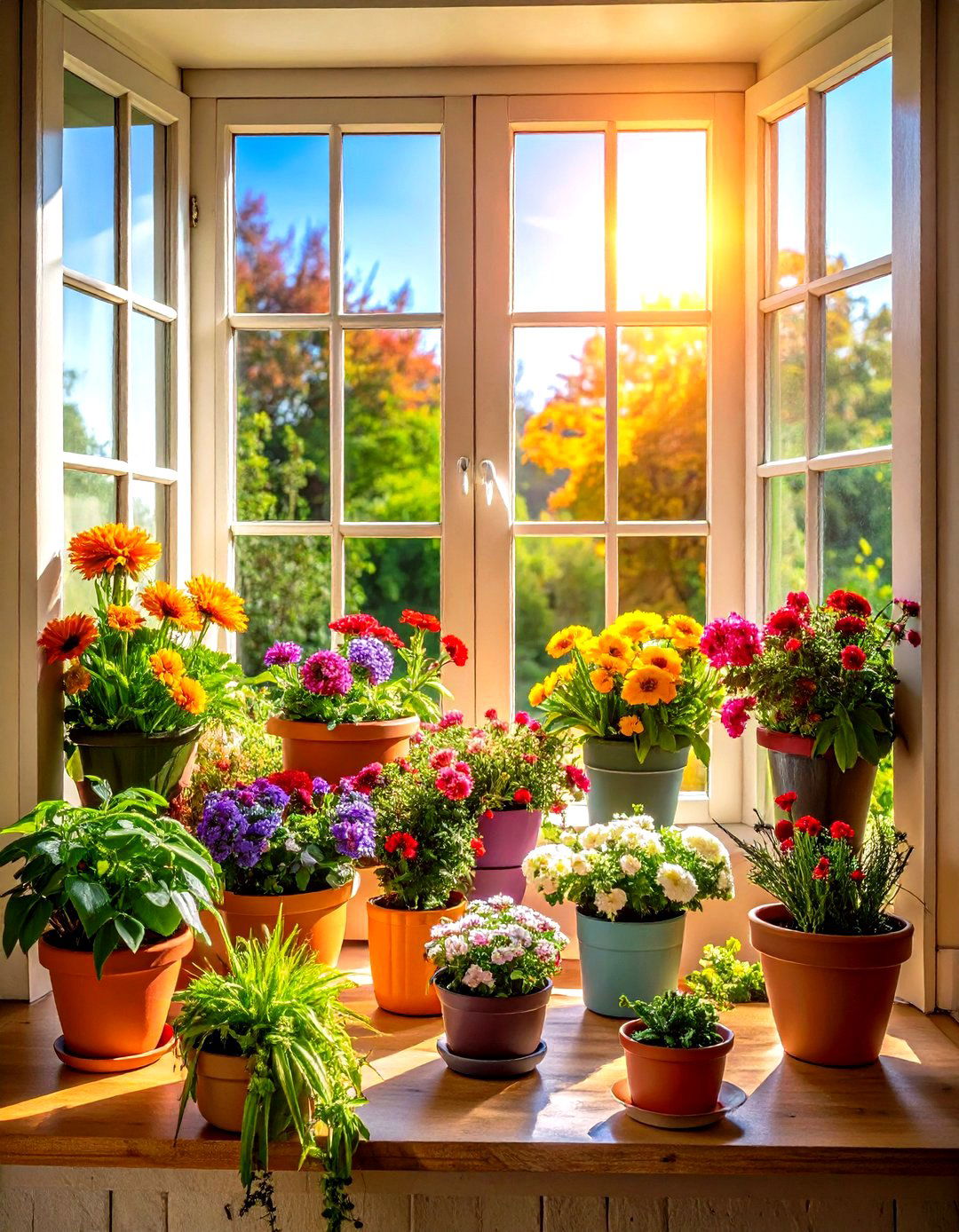
Maximize natural light exposure while creating beautiful window displays using plants that thrive in bright conditions and complement your window's architecture and proportions. Arrange plants of varying heights across window sills, ensuring each receives adequate light while creating pleasing compositions visible from both inside and outside. Mix flowering varieties with foliage plants to provide year-round interest, and consider seasonal rotations to highlight different plants throughout the year. Use decorative saucers or trays to protect window sills from water damage while maintaining consistent visual themes. These displays create natural privacy screens while connecting indoor and outdoor environments through strategic plant placement and seasonal awareness.
15. Living Room Coffee Table Arrangements

Design sophisticated coffee table centerpieces using low-maintenance plants that won't obstruct conversation or interfere with the table's functionality while adding natural beauty to central living spaces. Choose plants with interesting textures or architectural forms that look attractive from all angles, such as small Palms, Orchids, or artistic Succulent arrangements. Elevate plants on books or decorative platforms to create visual layers while leaving space for drinks, remotes, and daily items. Consider plants with pleasant fragrances or air-purifying qualities that enhance the room's ambiance. Rotate arrangements seasonally to keep displays fresh while ensuring plants receive appropriate care and attention for optimal health and appearance.
16. Floating Shelf Plant Galleries
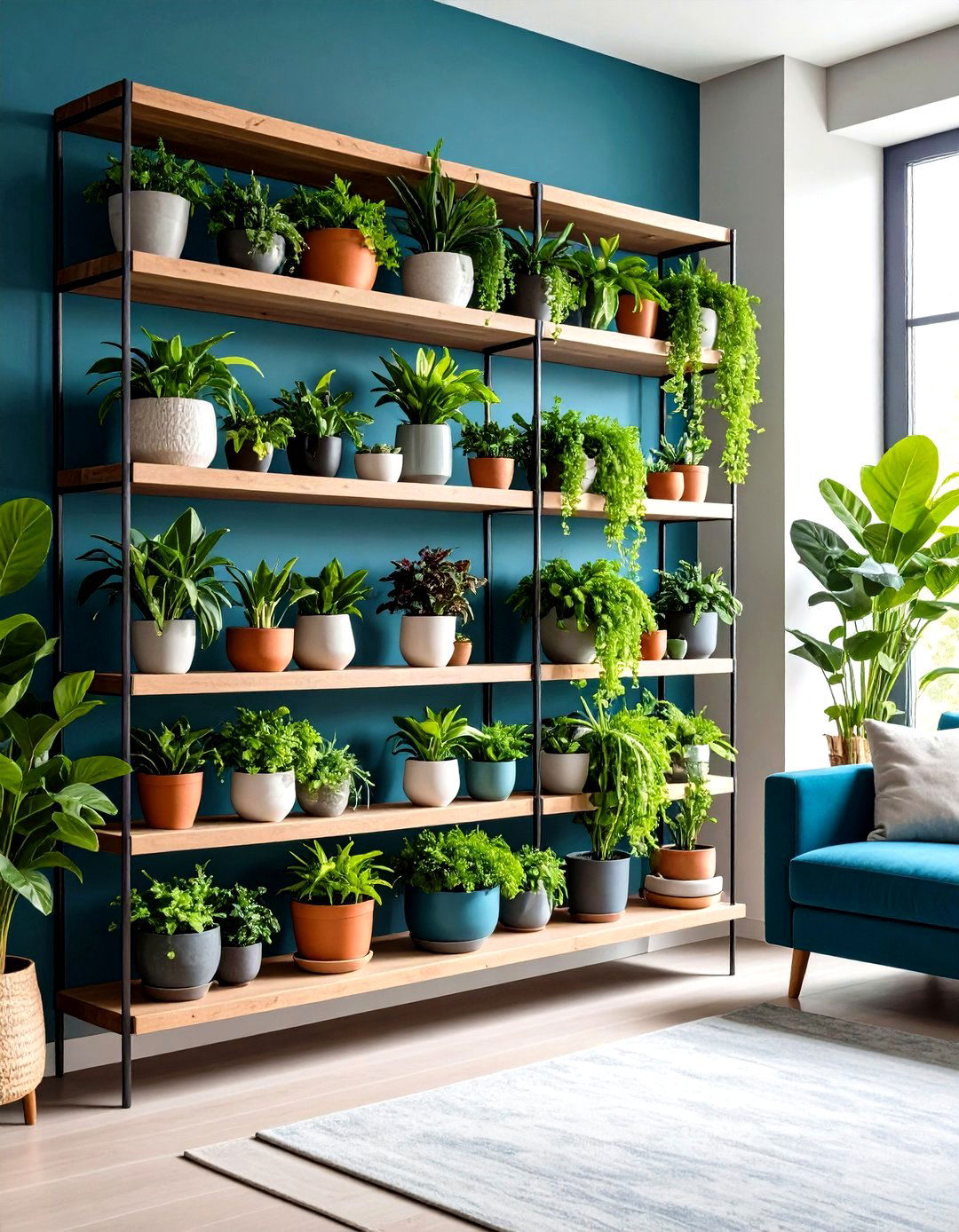
Install floating shelves at varying heights to create living plant galleries that showcase your collection while saving floor space and creating artistic wall displays. Arrange plants by size, color, or theme to create cohesive visual stories that complement your room's existing artwork and decor. Mix trailing plants that drape over shelf edges with upright varieties that provide vertical accents and structural interest. This approach allows for easy plant care access while creating museum-quality displays that evolve as plants grow and change throughout seasons. Consider adding subtle lighting to highlight plants during evening hours while creating dramatic shadows and silhouettes that enhance the overall display aesthetic.
17. Entrance Foyer Plant Welcomes
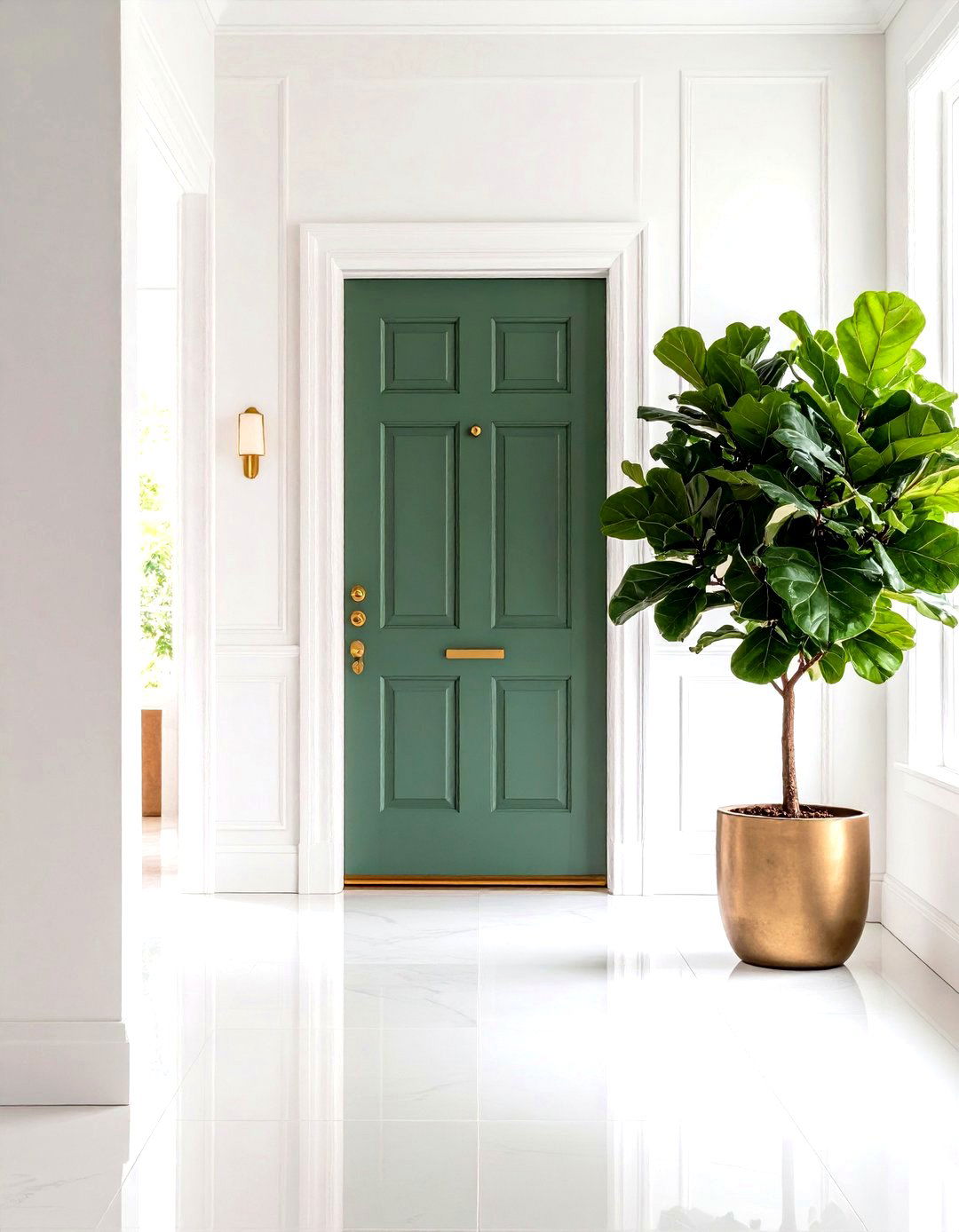
Create impressive entry displays using dramatic plants that welcome guests while setting the tone for your home's overall aesthetic and design philosophy. Large statement plants like Fiddle Leaf Figs or architectural Palms positioned near entryways create immediate visual impact while demonstrating your commitment to bringing nature indoors. Consider durability and maintenance requirements since entryway conditions can be challenging with temperature fluctuations and varying light levels. Add smaller complementary plants on console tables or hanging displays to create layered welcomes that feel abundant and inviting. These first impressions establish your home's personality while providing natural beauty that guests remember long after their visit ends.
18. Dining Room Plant Ambiance

Enhance dining experiences using plants that create intimate atmospheres without overwhelming the space or interfering with meal preparation and serving activities. Hanging plants above dining tables or corner arrangements that don't compete with food presentations work best for maintaining functionality. Choose plants with pleasant or neutral scents that complement rather than conflict with food aromas. Consider plants that look attractive under evening lighting since dining rooms are often used during dinner hours when natural light is limited. These arrangements should enhance conversation and relaxation while providing natural beauty that makes everyday meals feel more special and restaurant dining experiences more memorable.
19. Reading Nook Plant Sanctuaries
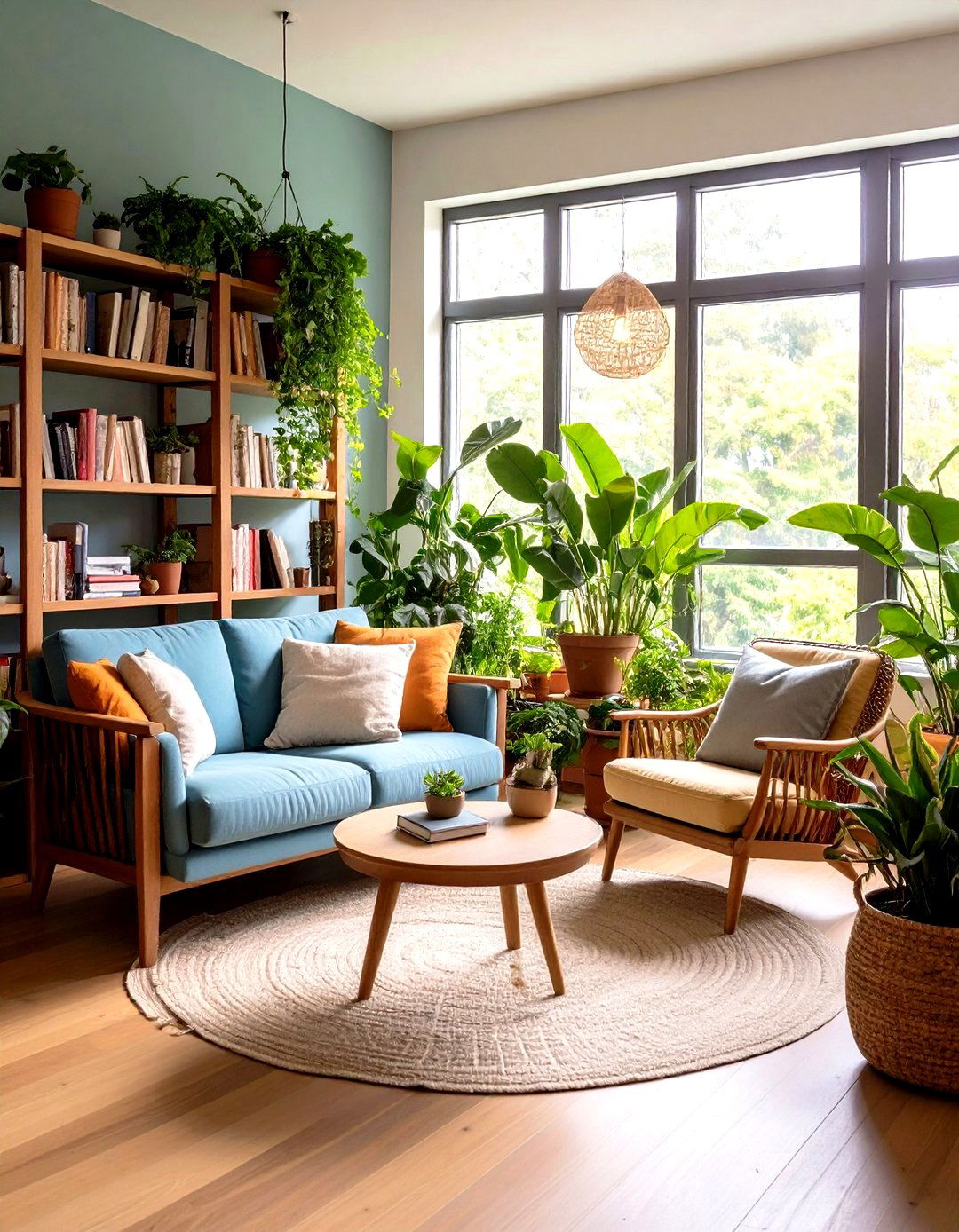
Design cozy reading corners surrounded by plants that create natural privacy screens while providing calming green environments perfect for focused attention and relaxation. Position larger plants behind seating areas to create intimate enclosures while using smaller plants on nearby tables for close-up natural beauty. Choose plants that tolerate lower light conditions common in corner locations while providing visual interest that doesn't distract from reading activities. Add plants with air-purifying qualities to enhance cognitive function and concentration during extended reading sessions. These green sanctuaries become personal retreats where literature and nature combine to create perfect spaces for intellectual and emotional renewal.
20. Bathroom Vanity Plant Displays
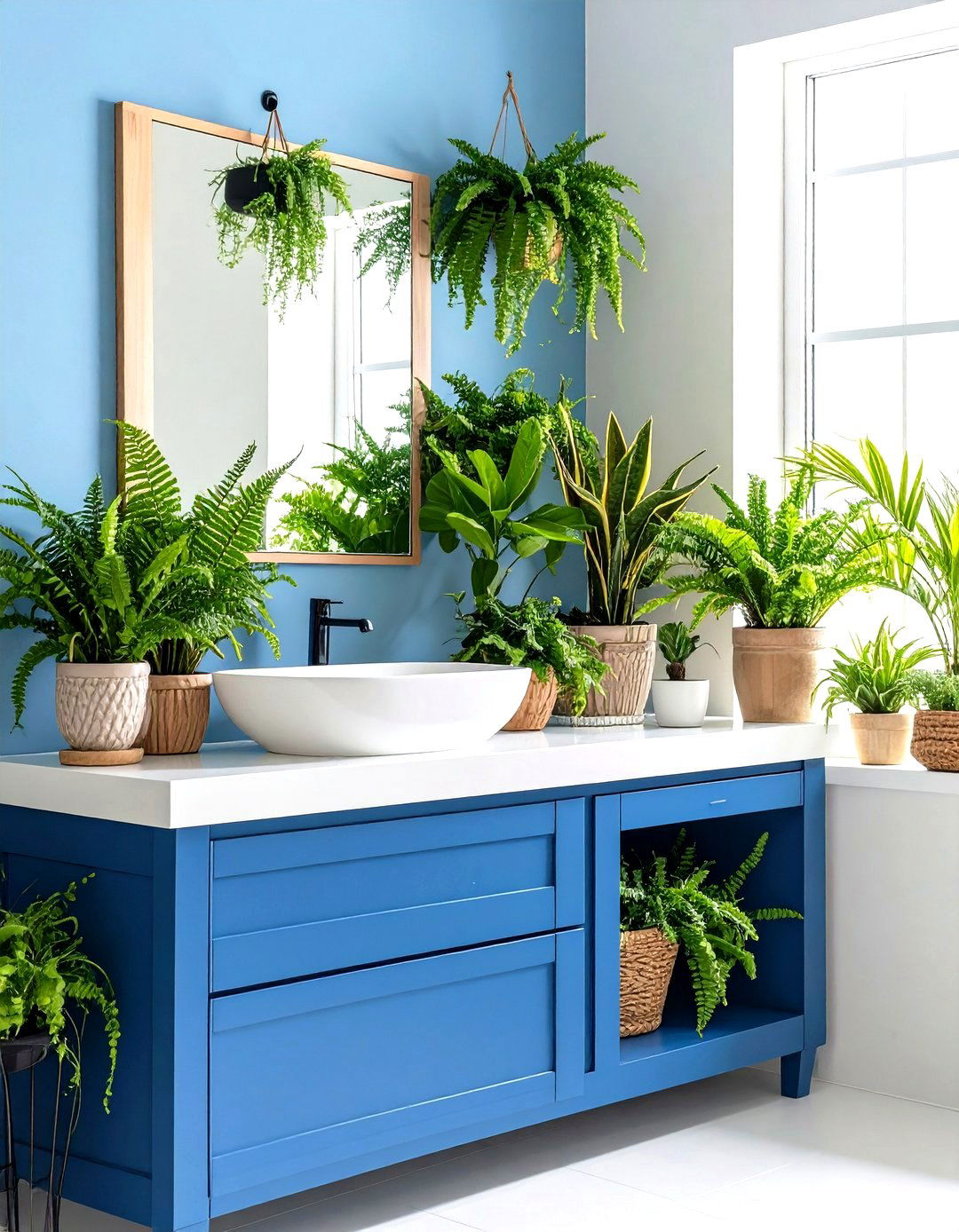
Transform bathroom vanities into spa-like environments using compact plants that thrive in humid conditions while complementing existing fixtures and storage needs. Small ferns, air plants, or moisture-loving varieties positioned near mirrors create natural beauty without cluttering essential bathroom functions. Choose plants that benefit from shower steam while tolerating artificial lighting common in windowless bathrooms. Use waterproof containers or elevated surfaces that protect plants from direct water exposure while maintaining easy access for daily routines. These displays turn mundane morning and evening routines into refreshing experiences surrounded by natural beauty that promotes wellness and self-care throughout busy days.
21. Seasonal Flowering Plant Rotations

Create ever-changing displays using seasonal flowering plants that provide colorful highlights throughout the year while maintaining fresh, dynamic plant arrangements that prevent visual boredom. Rotate spring bulbs, summer annuals, autumn chrysanthemums, and winter flowering varieties to ensure year-round color and interest. This approach allows you to experiment with different plant types while providing seasonal celebrations that connect your indoor environment with natural outdoor cycles. Store off-season plants in appropriate locations, bringing them forward when their blooming periods arrive. Plan rotations to ensure smooth transitions between seasons while maintaining consistent visual appeal and plant health throughout the year.
22. Mirror and Plant Reflection Displays
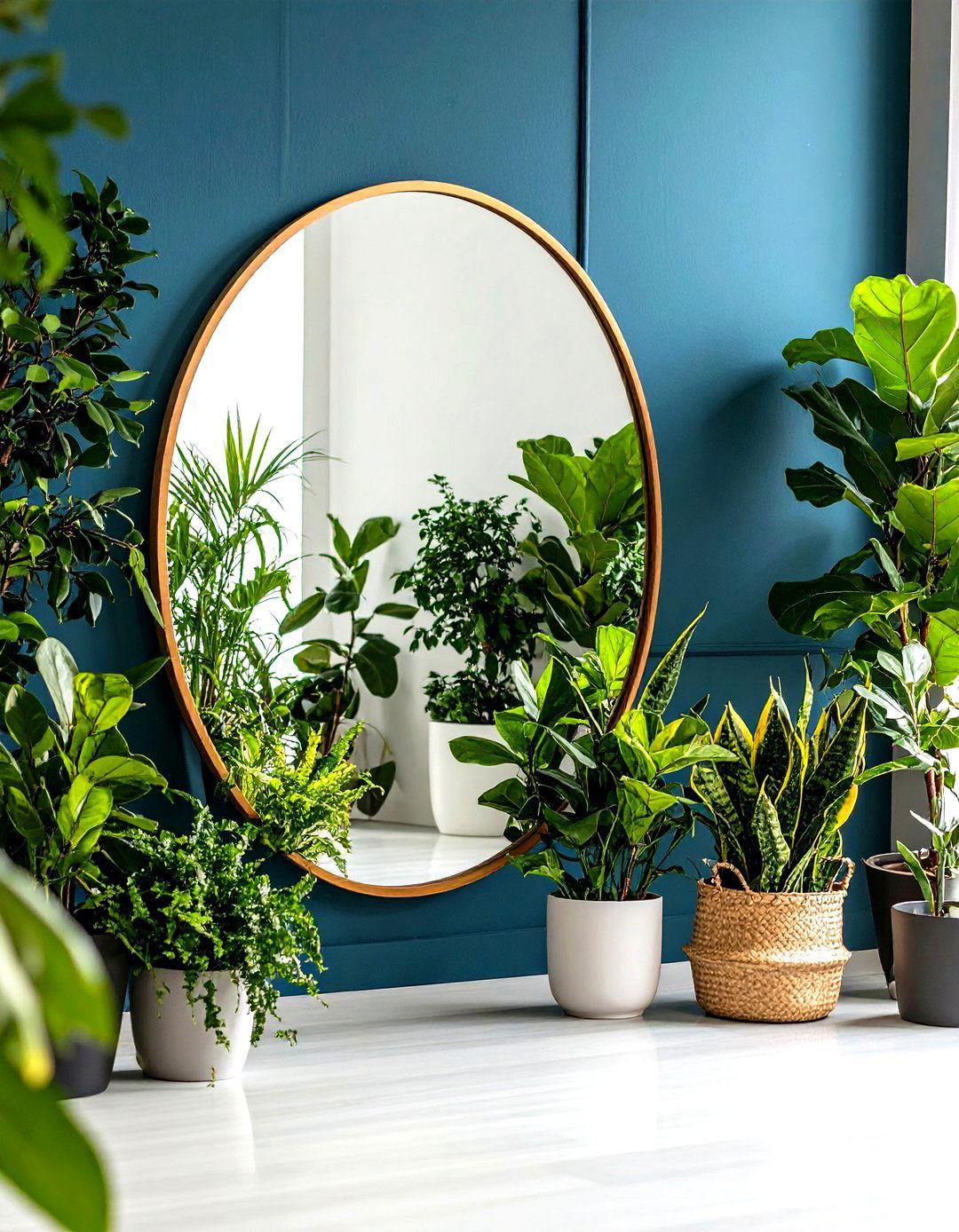
Combine plants with mirrors to create illusions of doubled greenery while enhancing natural light distribution throughout rooms with limited lighting conditions. Position plants in front of mirrors to create depth and visual expansion while reflecting natural beauty from multiple angles. This technique works particularly well in small spaces where actual plant quantity is limited but visual impact needs to feel abundant and lush. Choose plants with interesting shapes or variegated foliage that look attractive from multiple viewing angles when reflected. Strategic mirror placement can also redirect natural light to plants positioned away from windows, improving growing conditions while creating sophisticated display techniques.
23. Home Office Stress-Relief Plant Arrangements

Design workplace plant displays specifically focused on reducing stress, improving air quality, and enhancing mental clarity during demanding work periods and tight deadlines. Research suggests certain plants like Snake Plants, Peace Lilies, and Rubber Trees actively remove workplace toxins while providing psychological benefits that improve job satisfaction and productivity. Position plants within easy viewing distance from workstations to provide regular visual breaks from computer screens. Choose low-maintenance varieties that won't add stress to busy schedules while providing maximum wellness benefits. These arrangements should feel intentional and professional while creating healthier work environments that support both physical and mental well-being.
24. Maximalist Plant Jungle Displays
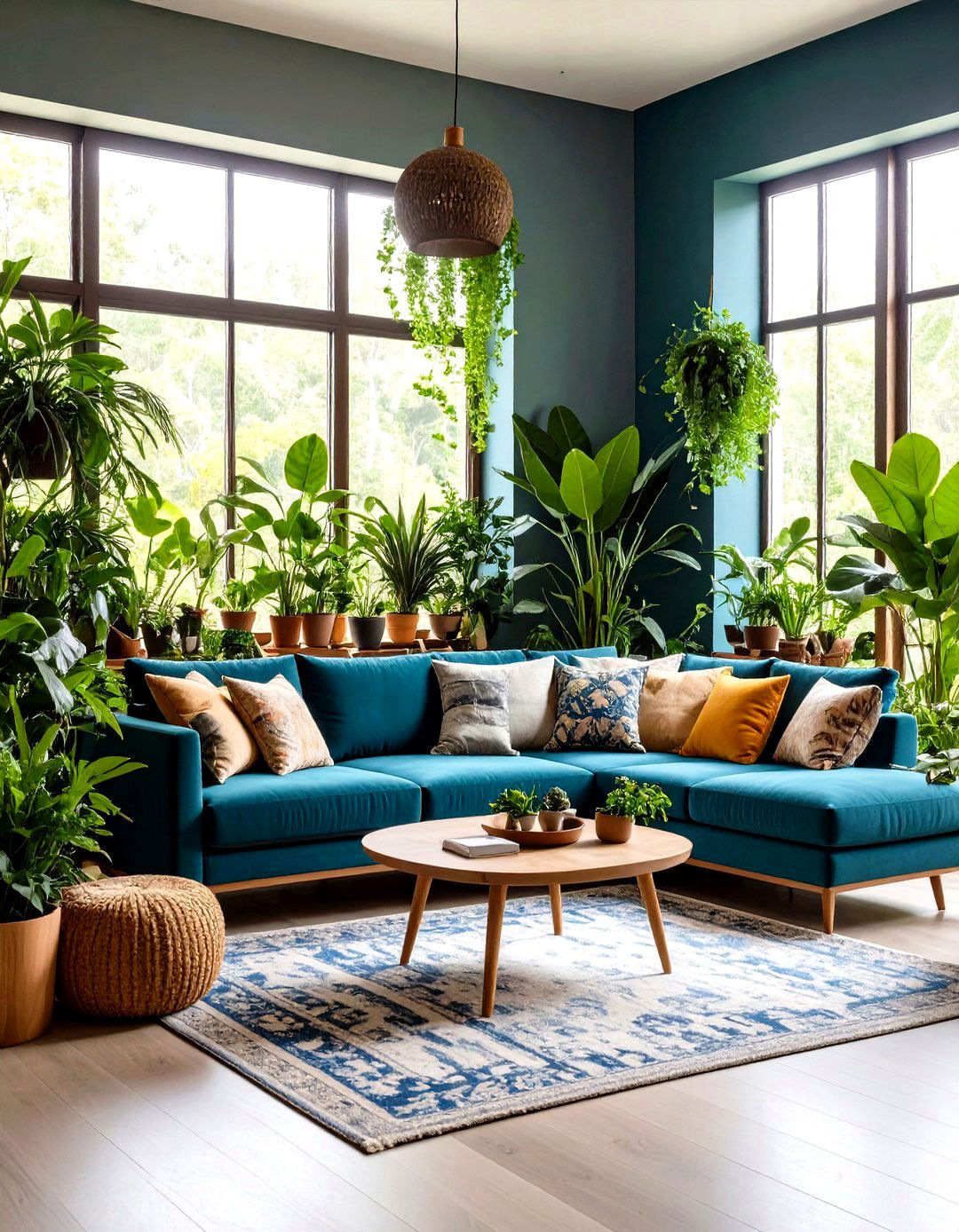
Embrace abundant plant displays that transform entire rooms into lush, jungle-like environments filled with diverse plant varieties, textures, and growing patterns that create immersive natural experiences. Layer plants of different heights, from ground-covering varieties to ceiling-reaching specimens, creating dense green environments that feel like indoor forests. Mix tropical varieties with temperate plants, combining different leaf shapes, sizes, and colors to create rich, complex displays. This approach requires commitment to regular plant care and maintenance but rewards efforts with dramatic, life-changing environments that provide maximum connection to nature. Consider how this immersive approach might transform your daily routines and overall well-being through constant natural beauty.
Conclusion:
The journey of decorating with plants extends far beyond simple home improvement, creating living environments that actively contribute to our physical health, mental well-being, and daily happiness. These twenty-four approaches demonstrate that plant decorating can adapt to any space, lifestyle, or aesthetic preference while providing endless opportunities for creative expression and personal growth. Whether you start with a single statement plant or commit to a full jungle transformation, each plant addition brings your home closer to nature while creating unique displays that reflect your personality and values. The beauty of plant decorating lies in its evolutionary nature, allowing arrangements to grow, change, and adapt alongside your life circumstances and developing plant care skills, ensuring your home remains a dynamic, living space that continues inspiring and nurturing you for years to come.


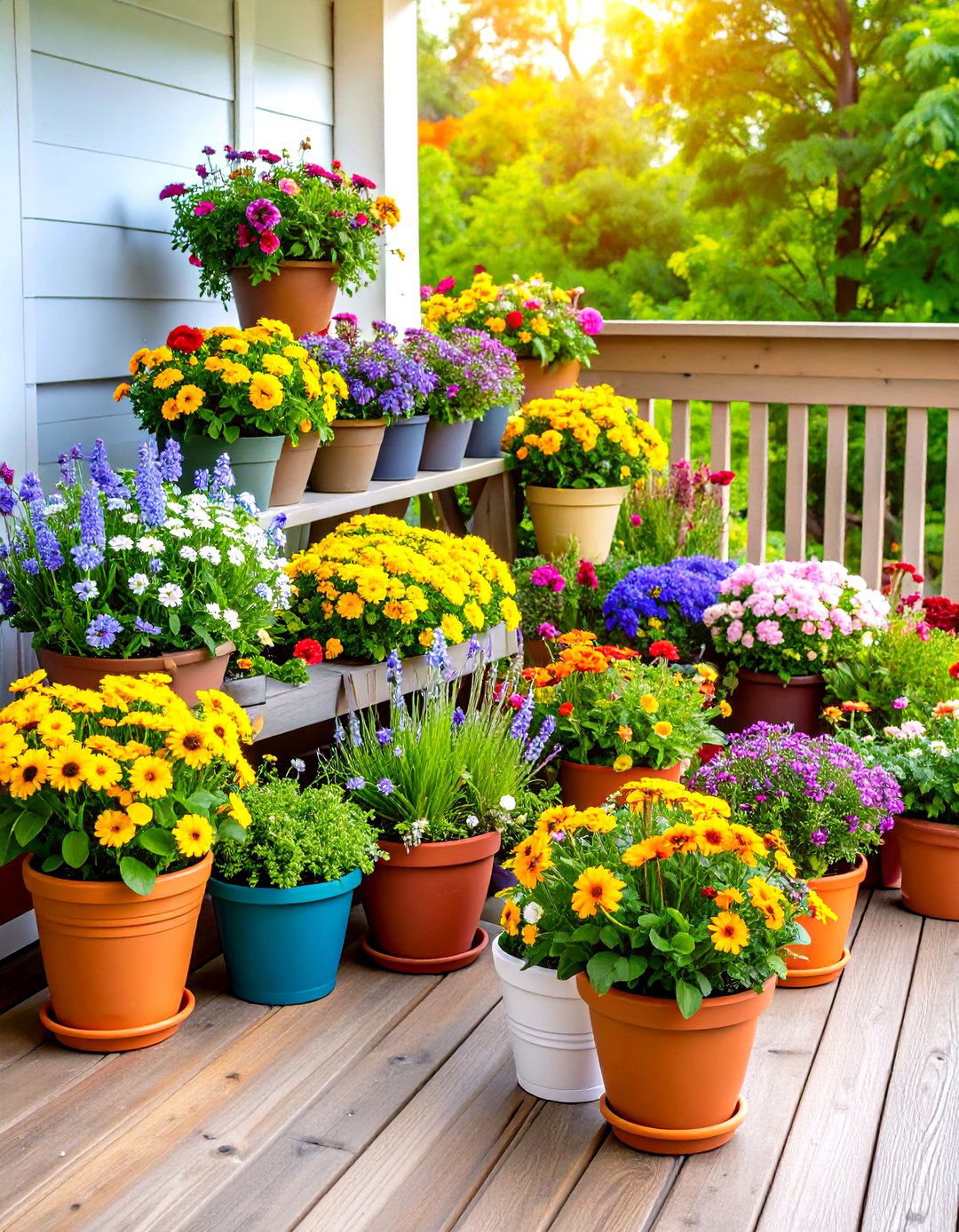



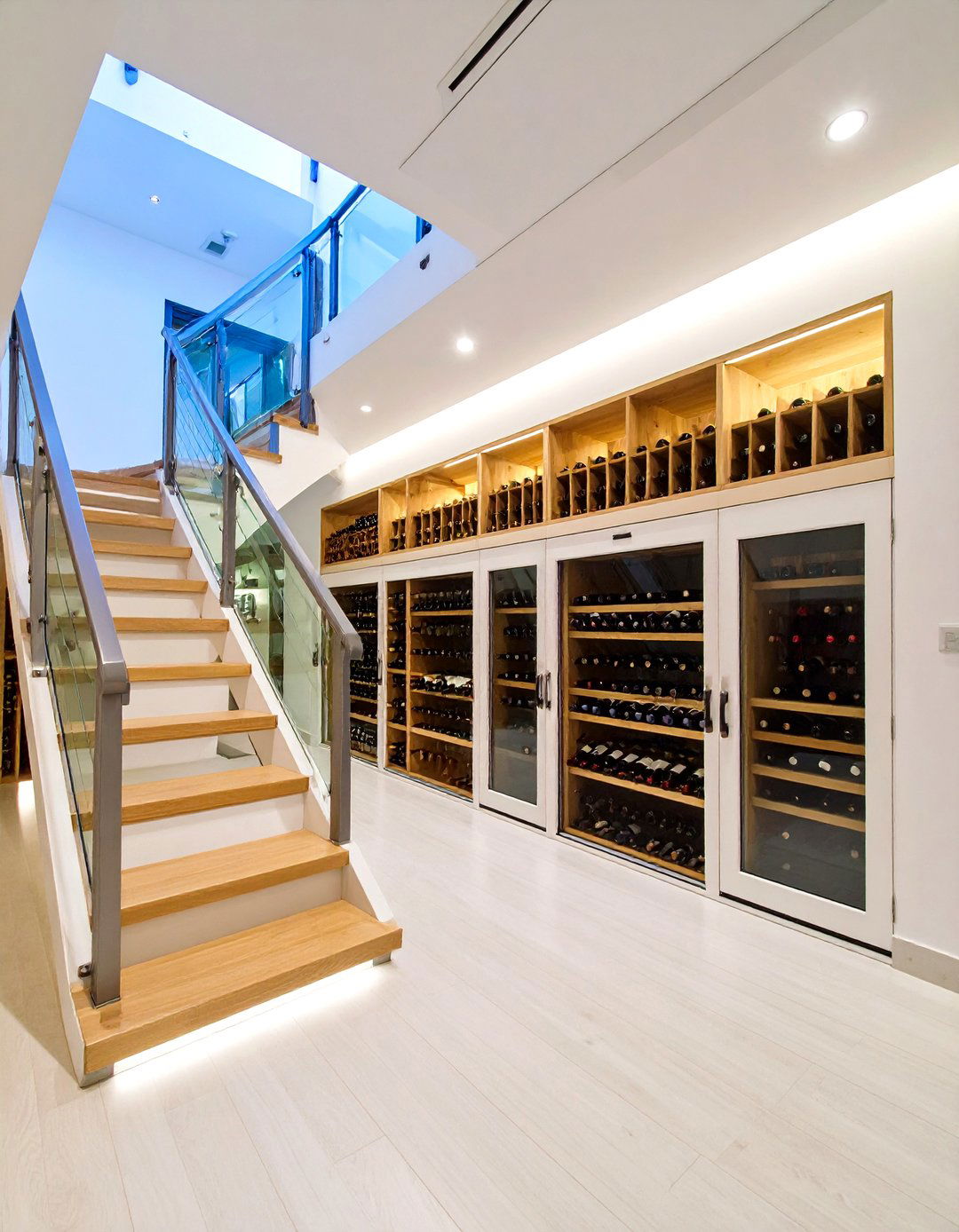
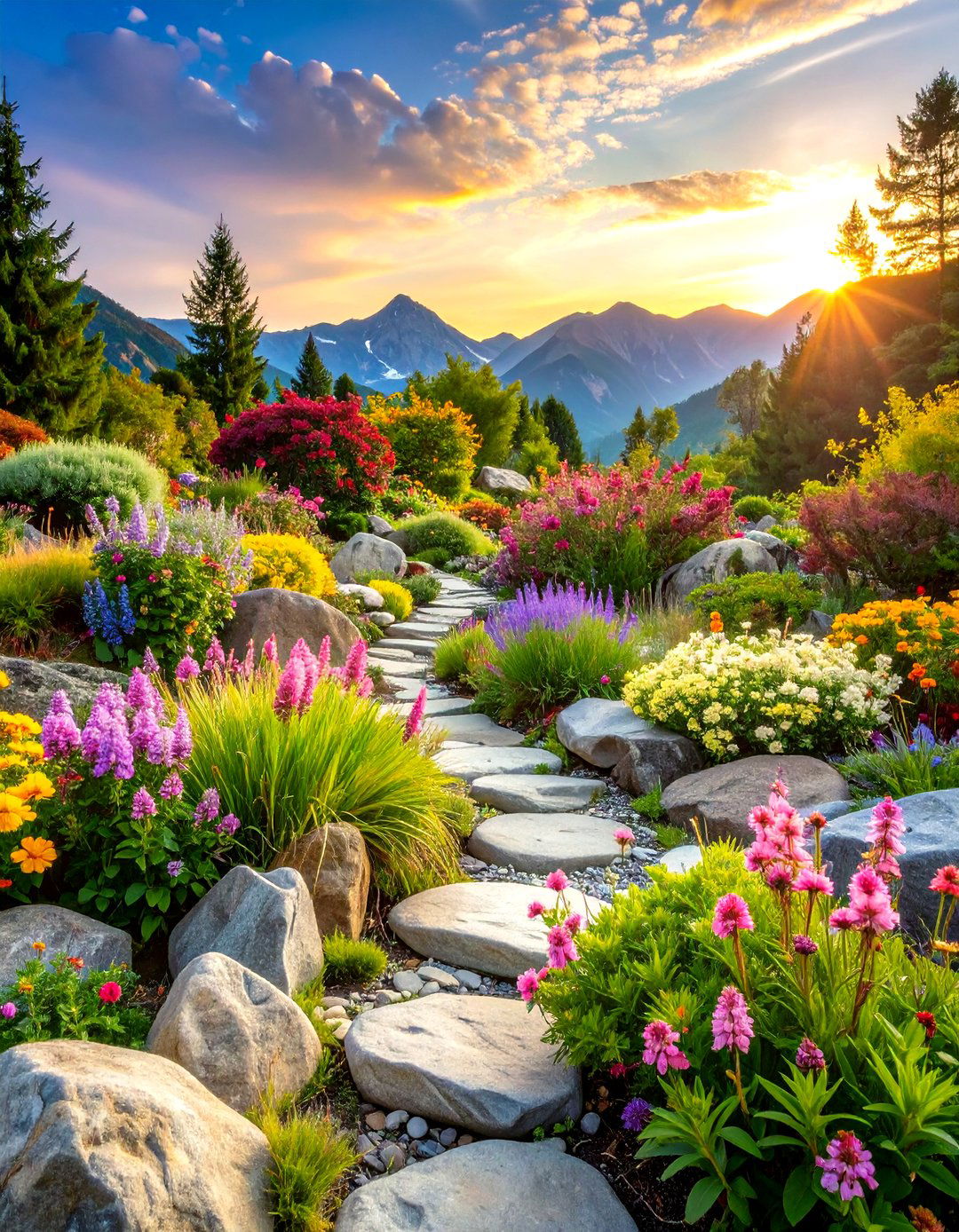
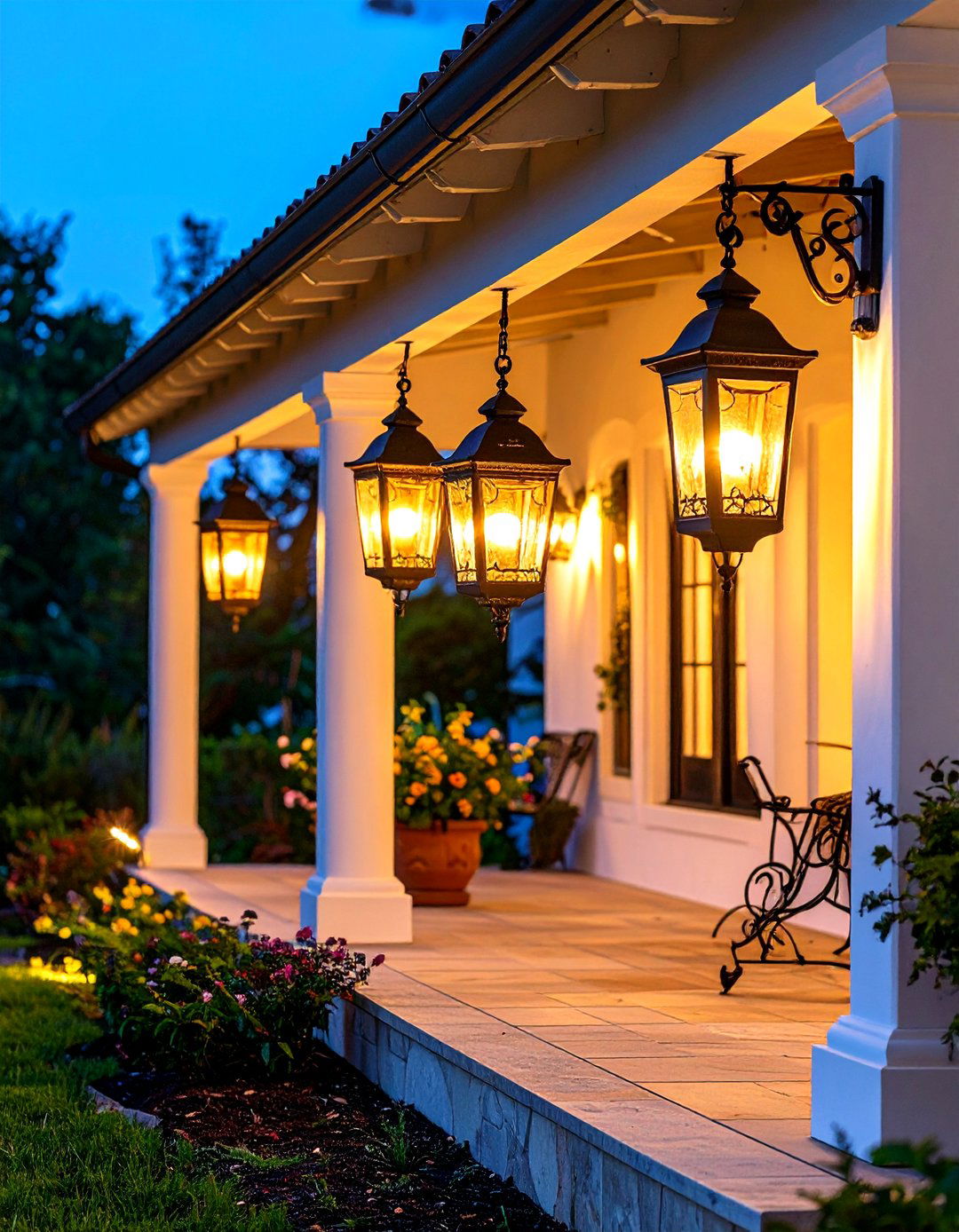

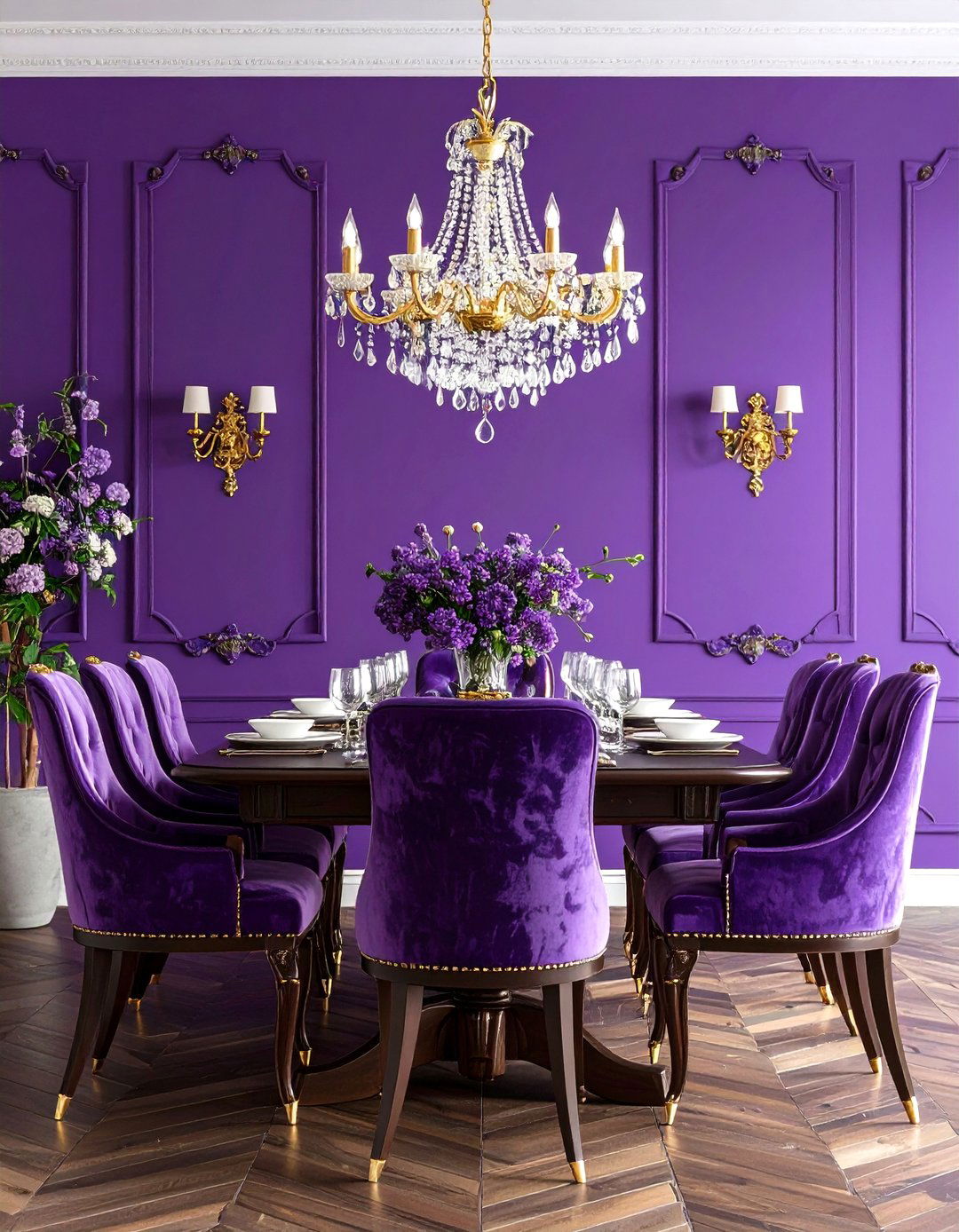
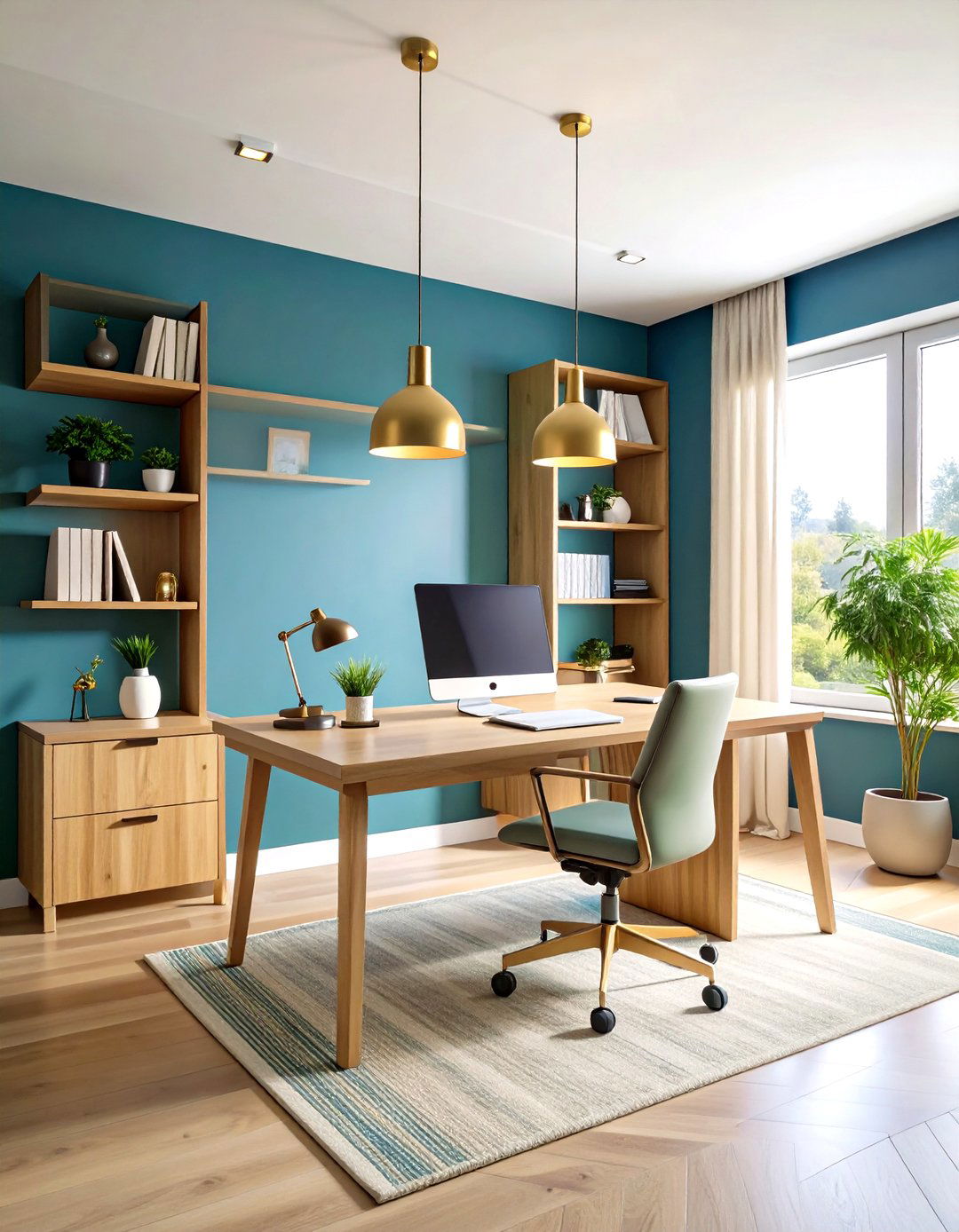
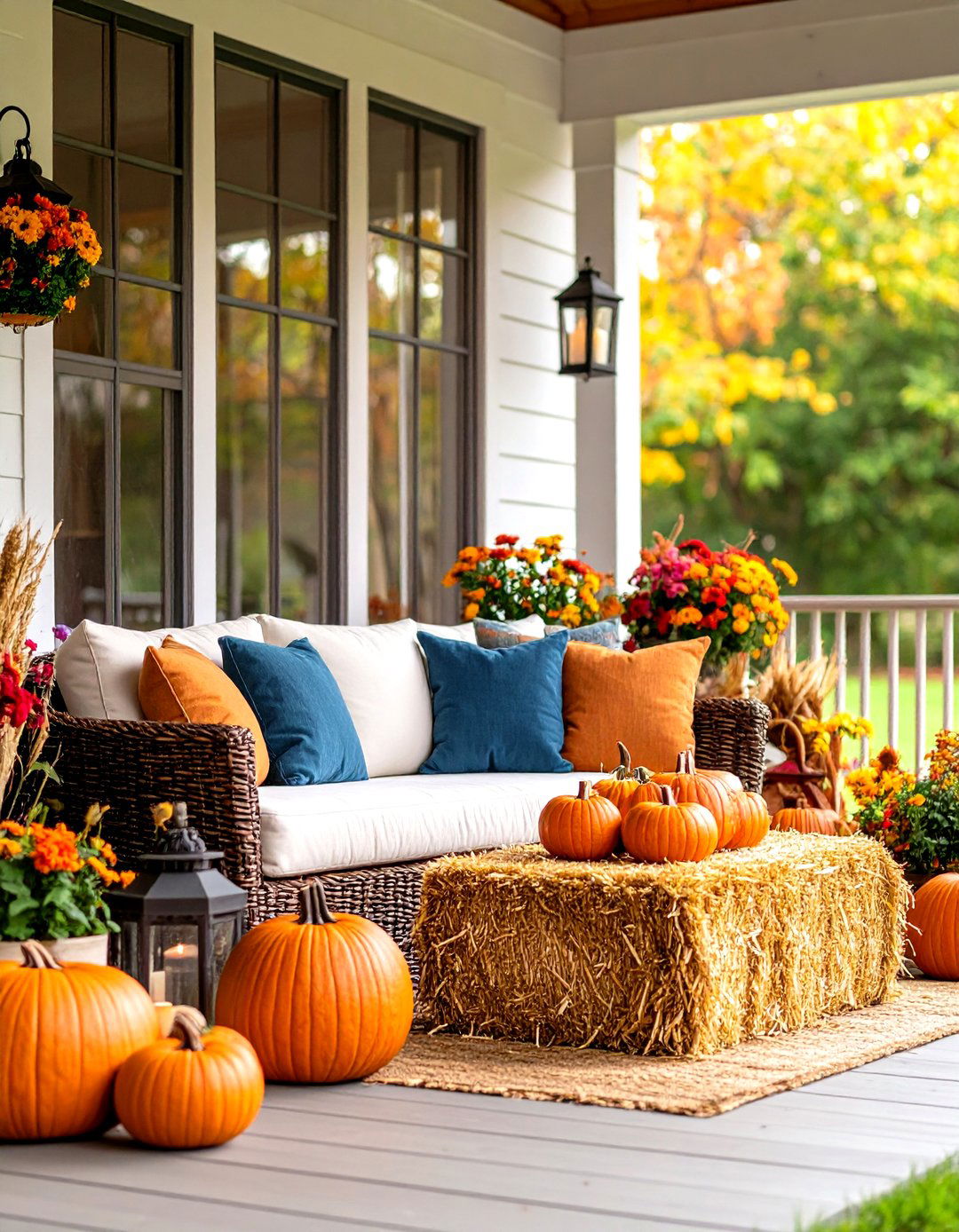
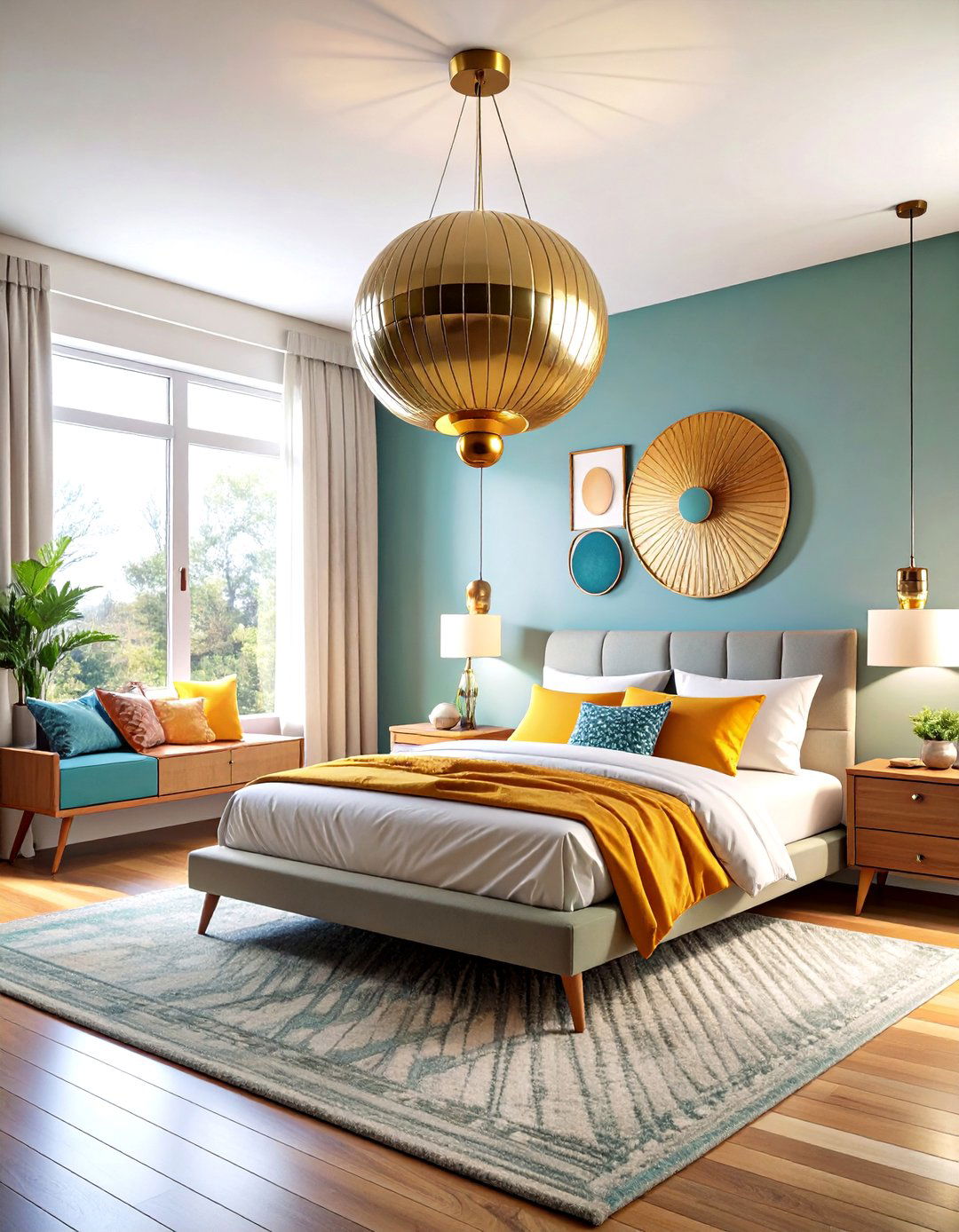
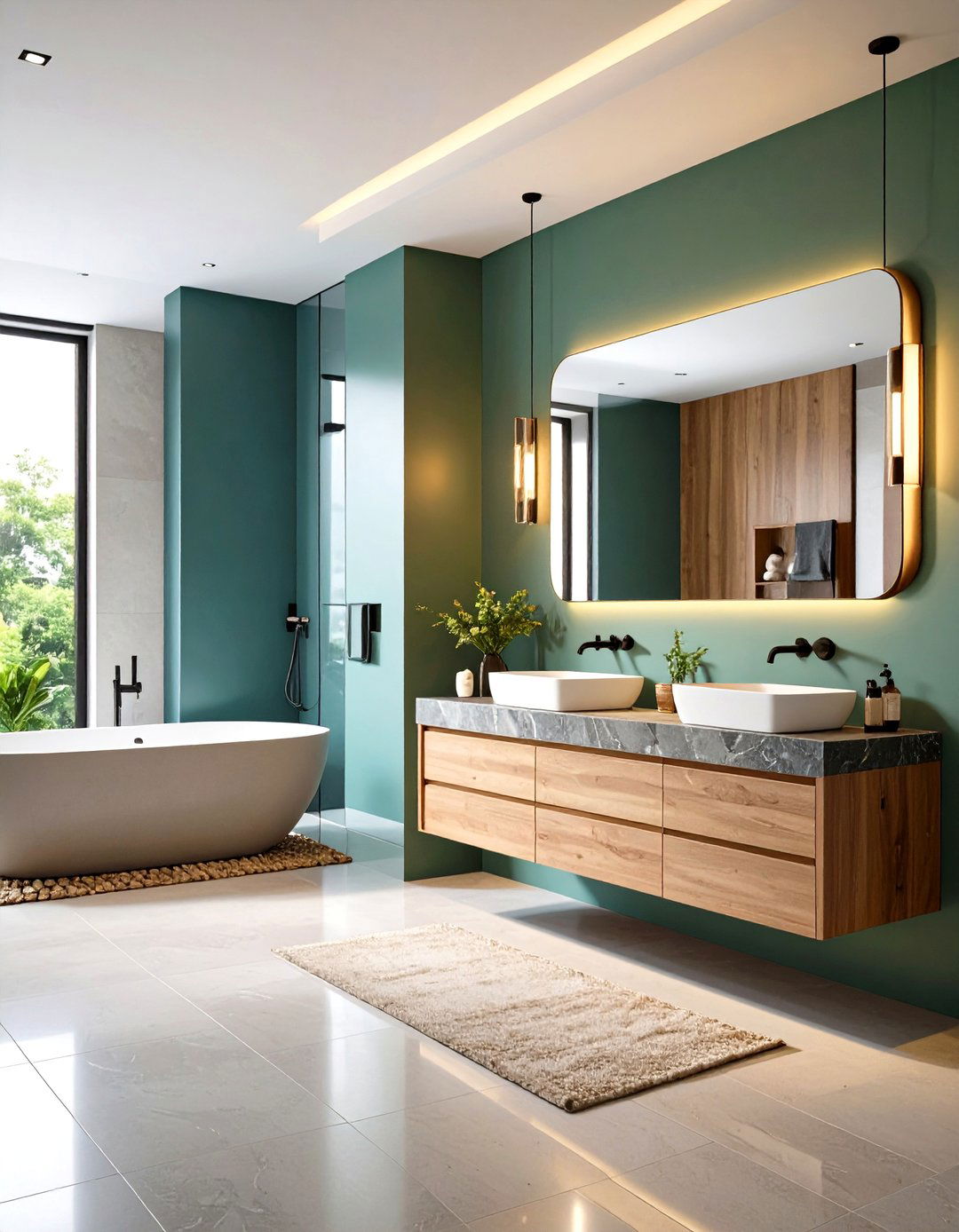

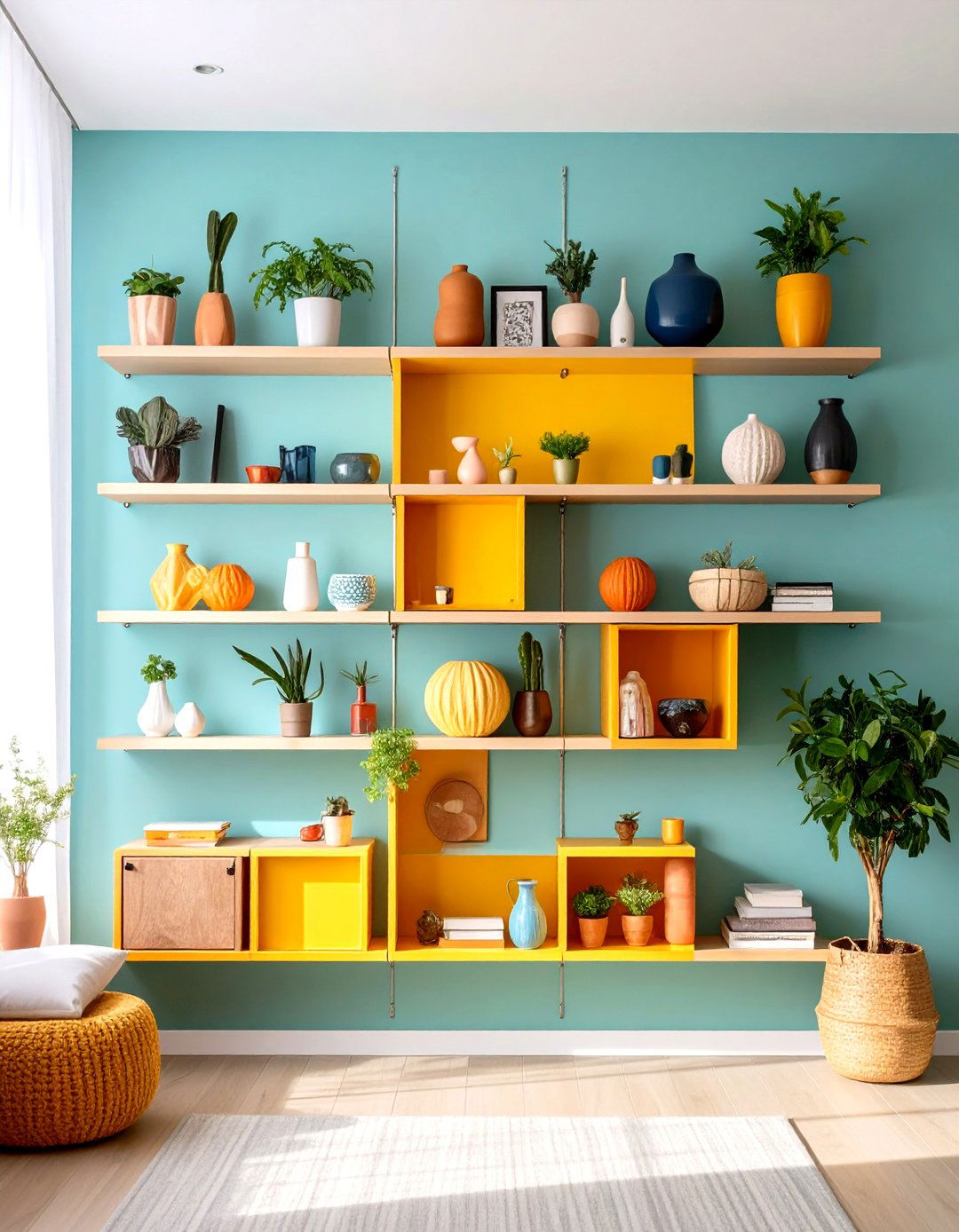
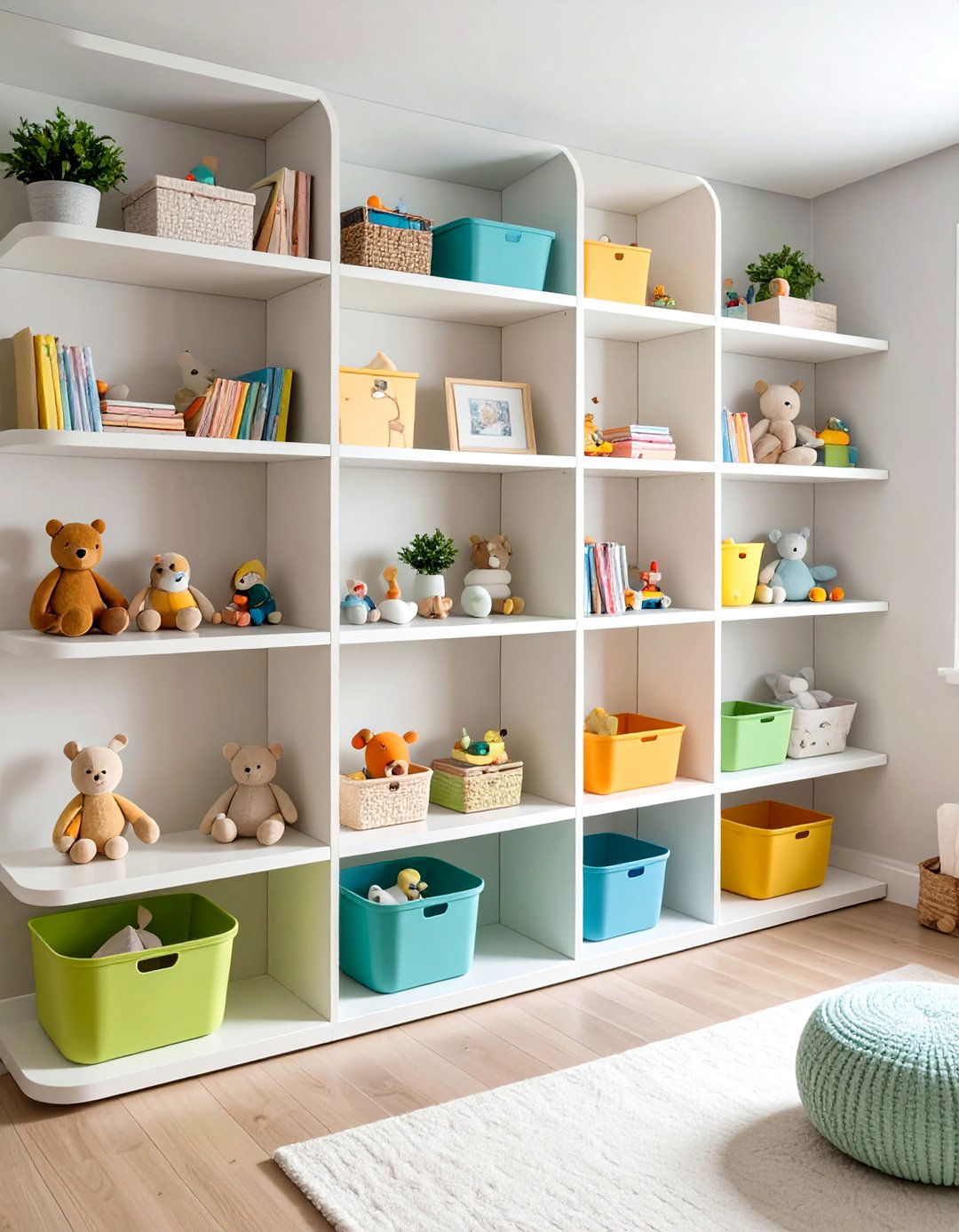
Leave a Reply